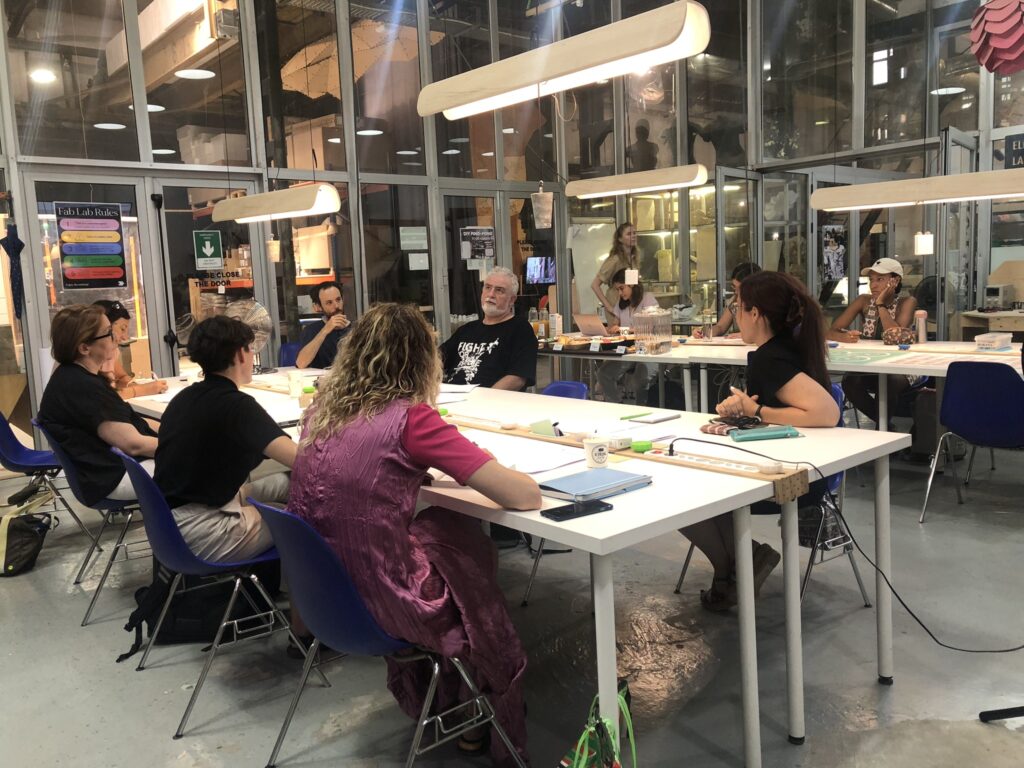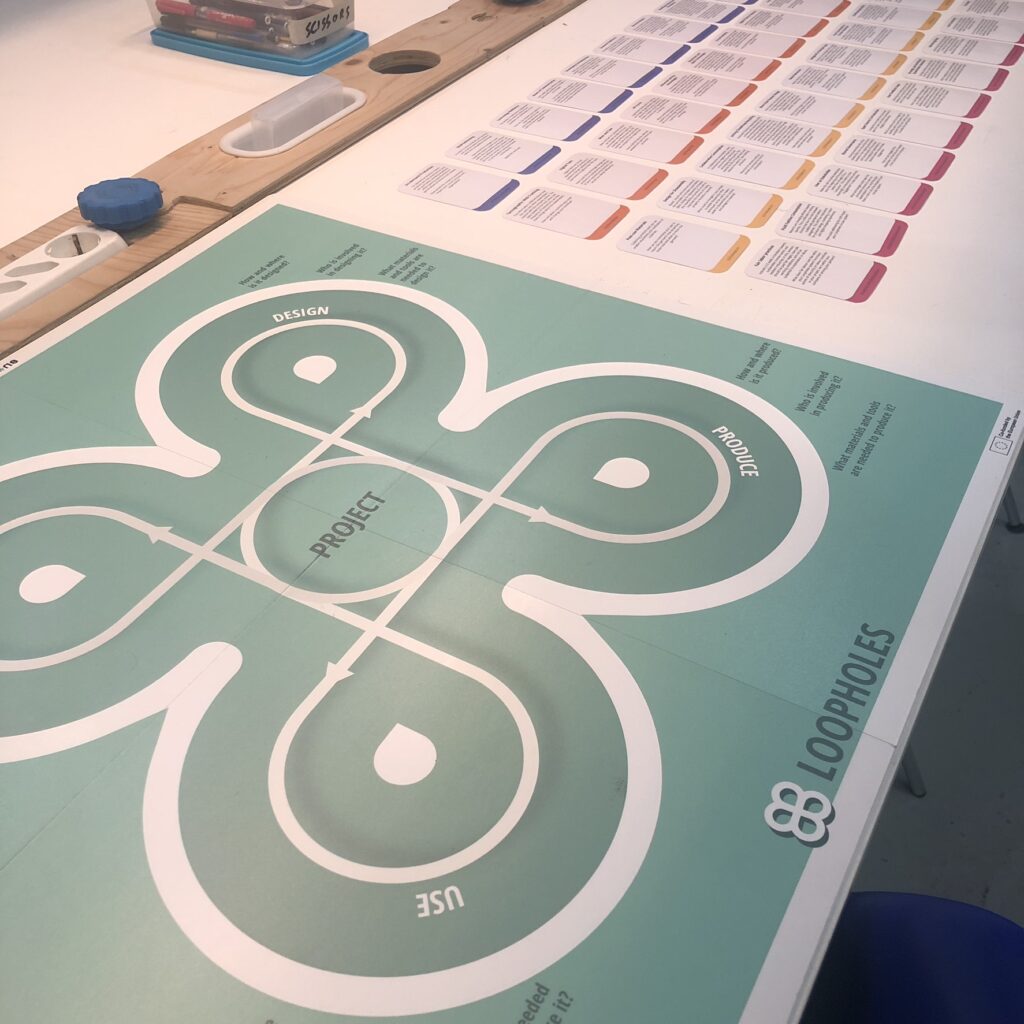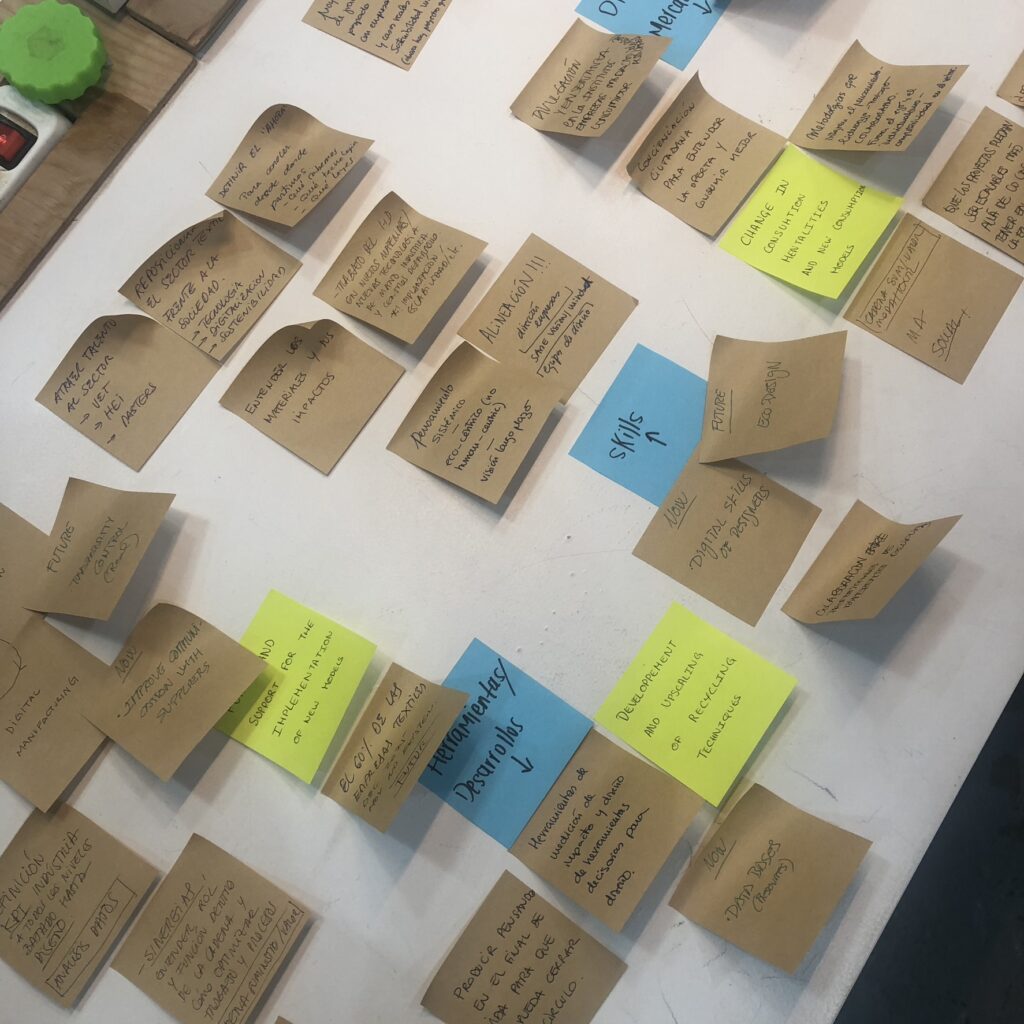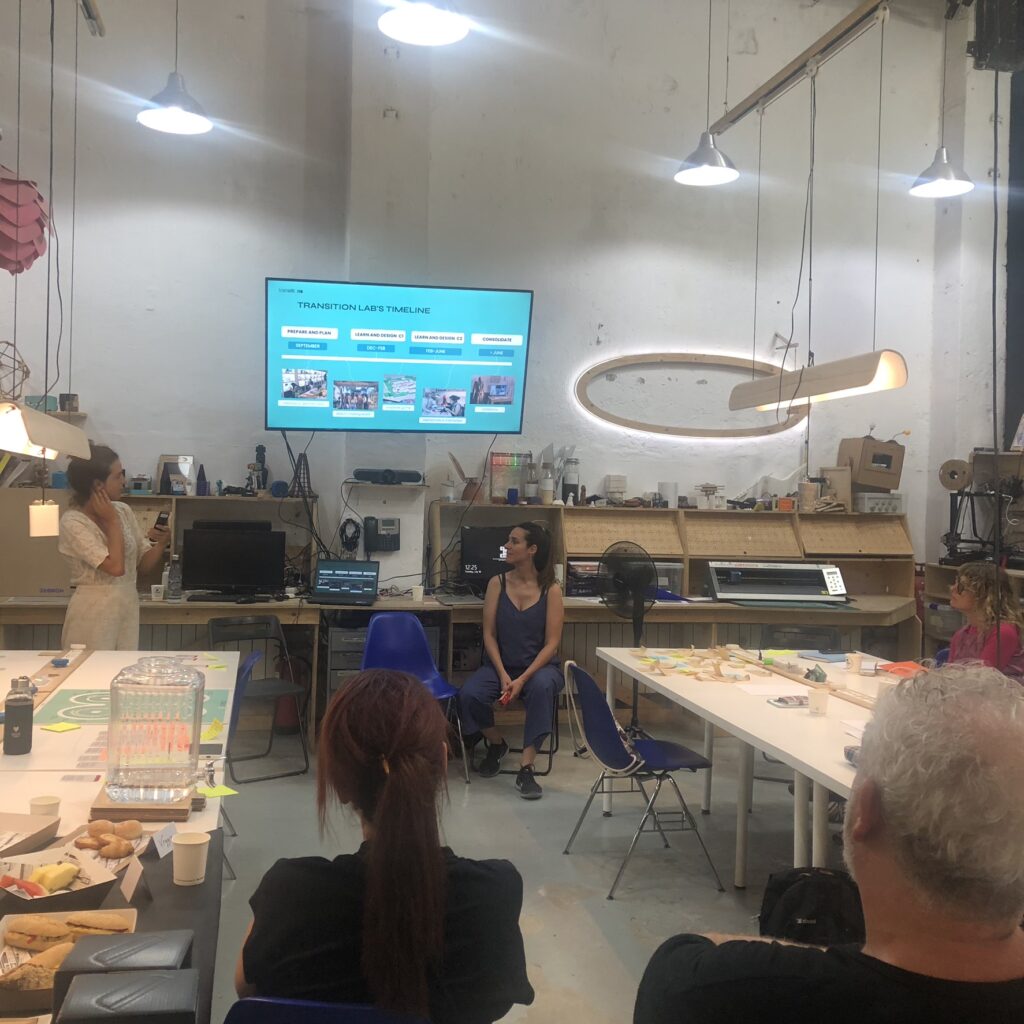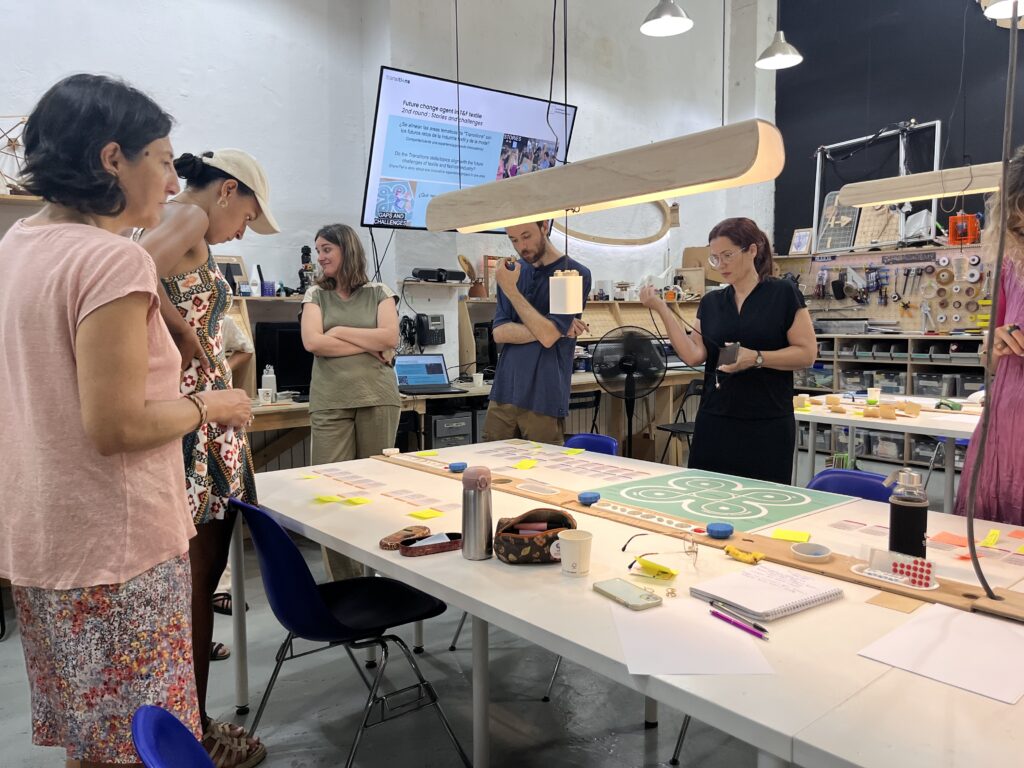On July 18, 2023, the Spanish entities from the Transitions project (Elisava, Modacc, and IAAC) organized a workshop to detect the needs, challenges, and skills of fashion companies and workers. The focus group aimed to design a profile for future change agents in the textile and fashion sectors.
The focus group involved participation from various stakeholders in the fashion sector, which generated a diverse debate and encouraged reflection from different perspectives on future change agents in the textile and fashion sectors.
Before delving into the core discussions, participants engaged in a structured questionnaire. This survey was designed to contextualise the ensuing discourse and solicit critical insights regarding the educational requisites within the textile sector. It provided a quantitative foundation to supplement the qualitative discussions that followed. Following the questionnaire, the forum transitioned into a focused exchange of ideas and perspectives. This facilitated dialogue culminated in a pivotal question: “What is important now and in the future?“.
The Loopholes Toolkit was provided to aid participants in structuring their reflections, offering a pragmatic framework for continued exploration and in-depth analysis of the educational dynamics shaping the textile sector.
After the group discussions of the future change agents in the textile & fashion sectors, the attendees placed their reflections in different post-its, letting the facilitating team categorise topics and levels of importance for future analysis. The categories were: Sustainability; Education and Training; Industry Evolution and Adaptation; and Technological Advancements and Skills.
In wrapping up the analysis of the focus group discussions, several key takeaways surface. Across all the categories mentioned above, common themes emerge. First and foremost, the Catalonian textile sector is significantly shifting towards sustainability. This encompasses both production practices and consumer awareness. The participants emphasised the importance of aligning company objectives with sustainability goals, integrating sustainability throughout the education system, and adopting innovative practices that reduce environmental impact.
Education and training stand as pillars of progress. These discussions underlined the significance of equipping individuals with the skills necessary to thrive in a rapidly evolving industry. This includes teacher training, collaboration with industry partners, and the development of digital skills among designers and professionals. Industry evolution is not just a matter of individual companies adopting; it’s about understanding the interconnectedness of the entire supply chain. Discussions emphasised systemic thinking, organisation alignment, and the need for industry-wide key performance indicators (KPIs) to track progress. Technological progress and innovation were widely acknowledged as driving forces behind the sector’s future. This includes developing tools for measuring impact, maintaining databases of resources, and implementing circular production chains with automation.
In summary, these discussions underscore the multifaceted nature of the textile sector’s future. The interplay between sustainability, education, industry adaptation, and innovation will define the path forward.
